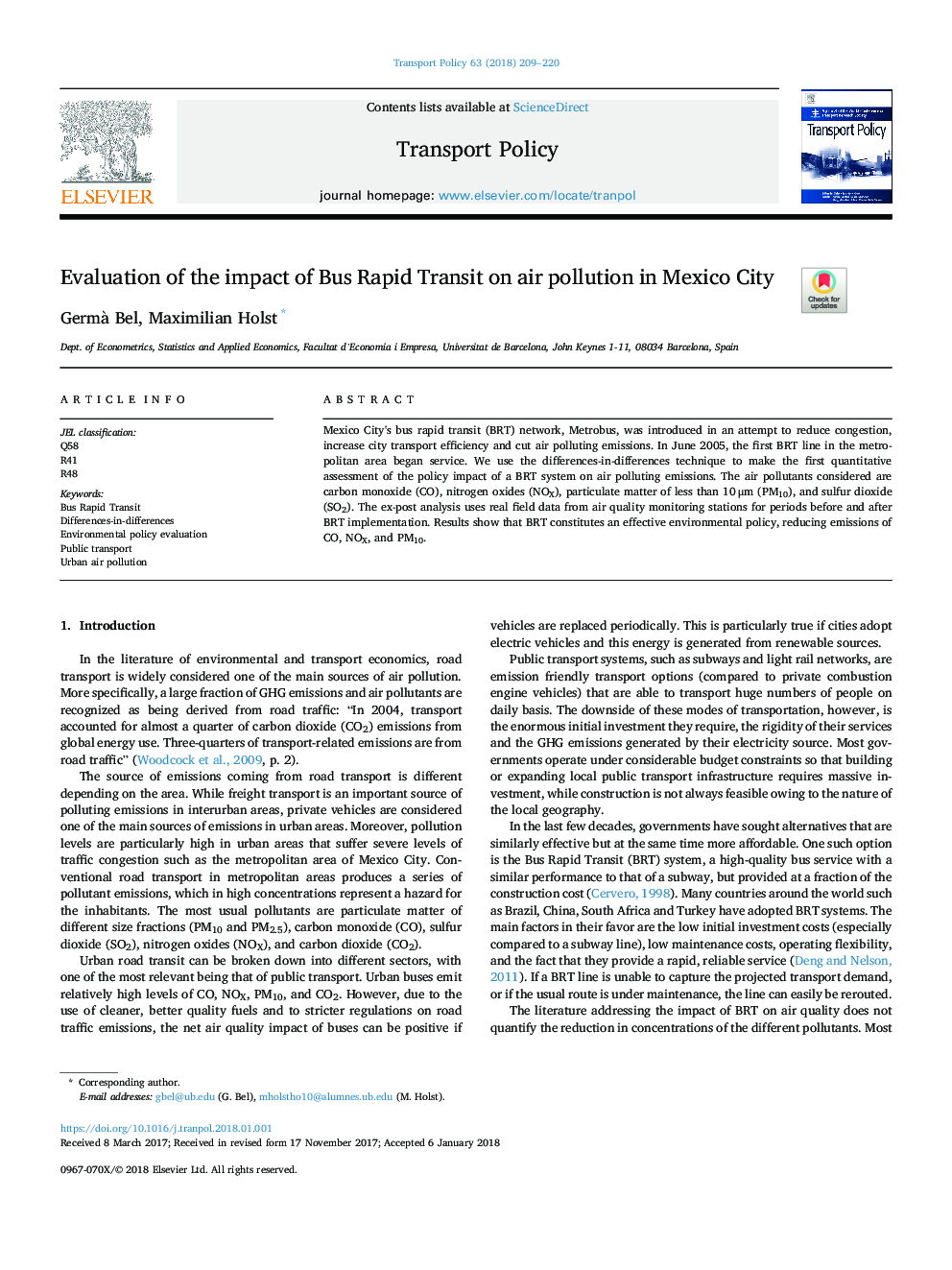| Article ID | Journal | Published Year | Pages | File Type |
|---|---|---|---|---|
| 7497244 | Transport Policy | 2018 | 12 Pages |
Abstract
Mexico City's bus rapid transit (BRT) network, Metrobus, was introduced in an attempt to reduce congestion, increase city transport efficiency and cut air polluting emissions. In June 2005, the first BRT line in the metropolitan area began service. We use the differences-in-differences technique to make the first quantitative assessment of the policy impact of a BRT system on air polluting emissions. The air pollutants considered are carbon monoxide (CO), nitrogen oxides (NOX), particulate matter of less than 10â¯Î¼m (PM10), and sulfur dioxide (SO2). The ex-post analysis uses real field data from air quality monitoring stations for periods before and after BRT implementation. Results show that BRT constitutes an effective environmental policy, reducing emissions of CO, NOX, and PM10.
Related Topics
Social Sciences and Humanities
Social Sciences
Geography, Planning and Development
Authors
Germà Bel, Maximilian Holst,
